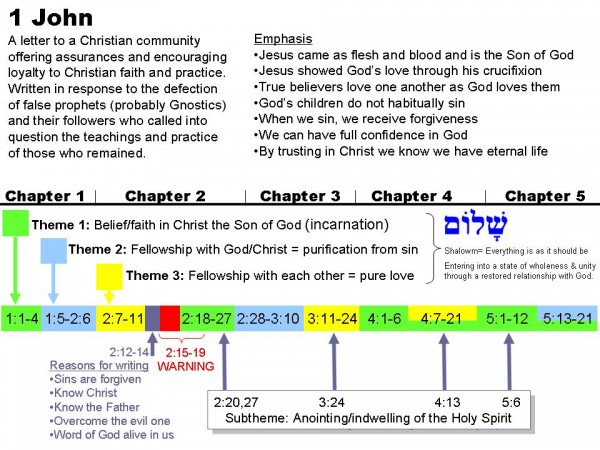1. Intro Extended periods of darkness in our lives are difficult to understand much more to deal with. But the reality of the love of God is that he is always light, even in the tough times.
This is the message we have heard from Him and announce to you, that God is Light, and in Him there is no darkness at all. 1 John 1:5 NASB
2. God is Light. The story of Bible is about God’s people seeking (and losing) the presence of God and the comfort of his light
O send out Your light and Your truth, let them lead me; Let them bring me to Your holy hill And to Your dwelling places. Psalms 43:3 NASB
3. A brief history of God’s presence
- God created Adam and Eve to be in His presence, but they ended up banned from the Garden and separated from God – Genesis 3:23-24 NASB
- God walked with Enoch – Genesis 5:21-24
- Noah walked and talked with God because he did not conformed to the world – Genesis 6:9
- Abraham walked in perfect obedience with God – Genesis 17:1-2
- Moses desires evidence of God’s promised presence – Exodus 33:12-18
- God’s glory fills the tabernacle and stays with the Israelites – Exodus 40:34-38
- The Ark of the covenant is stolen by the Philistines – but quickly returned. 1 Samuel 4:22
- God’s glory returns to Solomon’s temple – 2 Chronicles 7:1-3
- God departs Solomon’s Temple – Ezekiel 10:18
Then the glory of the Lord departed from the threshold of the temple and stood over the cherubim.
4. The Exile. Because of their unfaithfulness, God turned his people over to exile at the hands of the Assyrians and Babylonians – Jeremiah 25:1-11
There is no record that God’s glory ever returned to his formerly chosen people.
5. Jesus is the return of God’s glory
In the beginning was the Word, and the Word was with God, and the Word was God. He was in the beginning with God. All things came into being through Him, and apart from Him nothing came into being that has come into being. In Him was life, and the life was the Light of men. The Light shines in the darkness, and the darkness did not comprehend it. John 1: 1-5 NASB
 6. Trust the light. We face all kinds of darkness: emotional, mental, physical spiritual. Our joy and comfort is found in the spiritual light of Jesus. Even when mental, emotional, physical darkness grips our lives we have the constant light that shines out of the darkness. We must fight the desire to give in to darkness and trust the light.
6. Trust the light. We face all kinds of darkness: emotional, mental, physical spiritual. Our joy and comfort is found in the spiritual light of Jesus. Even when mental, emotional, physical darkness grips our lives we have the constant light that shines out of the darkness. We must fight the desire to give in to darkness and trust the light.
Zoe: of the absolute fullness of life, both essential and ethical, which belongs to God, and through him both to the hypo-static “logos” and to Christ in whom the “logos” put on human nature. life real and genuine, a life active and vigorous, devoted to God, blessed, in the portion even in this world of those who put their trust in Christ, but after the resurrection to be consummated by new accessions (among them a more perfect body), and to last for ever.
Even in darkness, there is light.
More:
God’s Glory — its Appearing, Departure and Return, Wm. C. Reid.
The Exiles of Israel: A Closer Look, Ed Stetzer
Walking in the light of God’s presence.
In Alaska, Darkness and Depression Descend, The Associated Press

